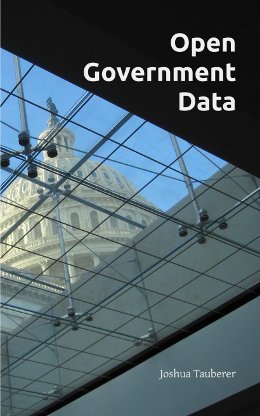The 21st Century: Data Policy
The open government movement that arose in the mid 20th century had a major shift in the first decade of the 21st century, beginning especially in 2009, largely due to the infusion of technologists into the movement. Open standards laws passed in Vancouver, Canada and Portland, Oregon in 2009 marked the beginning of this shift. In Vancouver:
Open and Accessible Data - the City of Vancouver will freely share with citizens, businesses and other jurisdictions the greatest amount of data possible while respecting privacy and security concerns; Open Standards - the City of Vancouver will move as quickly as possible to adopt prevailing open standards for data, documents, maps, and other formats of media;1
and in Portland, Oregon:
[T]he Council of the City of Portland . . . [d]irects the Bureau of Technology Services to . . . [d]evelop a strategy to adopt prevailing open standards for data, documents, maps, and other formats of media;2
Since then many city governments have enacted similar laws. San Francisco expanded on its 2009 open data directive3 by enacting a change to its municipal administrative code. It was the first law to adopt language from the 8 Principles of Open Government Data and it called for technical requirements to be created for the purpose of “making data available to the greatest number of users and for the greatest number of applications,” with “non-proprietary technical standards,” and a “generic license” such as a Creative Commons license.4 A similar bill was introduced in the New York City Council5 — it was enacted into law more than two years later in March 2012. The law defines data and open standards, it incorporates ideas from the 8 Principles of Open Government Data, and it requires public data sets to permit “automated processing and . . . to notify the public of all updates.” The first law to my knowledge to incorporate the full 8 Principles is New Hampshire’s open standards law (New Hampshire Revised Statutes 21-R:14), which was written in 2011 (and enacted in 2012) by an open source software developer turned state representative.6 (See New Hampshire HB 418 for an excerpt.) The law required state software acquisitions to consider open source software, that new data standards created by the state be open standards, and it directed the commissioner of information technology to develop state-wide information policies based on the 8 Principles. The bill’s open standards language was copied into Oklahoma bill HB 2197 which was enacted in April 2012. California SB 1002 (2012), which is currently pending in the California Senate, also defines open data drawing on the 8 Principles.
Additional open data laws have been enacted in Louisville, Kentucky (2009)7, Madison, Wisconsin (2012)8, and in the last few years about two dozen other U.S. cities and states.9
At the federal level, progress has been mixed. Executive orders from 2009 and 2013 have made open data mainstream (see U.S. Federal Open Data Policy for a detailed look). But in the other two branches of government progress has been much slower. The only significant federal open data law is the 2014 DATA Act, which mandates the creation of new data standards and publications for government spending.10 There have been no open data efforts in the judicial branch to my knowledge.
And internationally, open data laws have been passed in cities including Hamburg, Germany (2012)11. In 2011 the New Zealand government approved comprehensive general principles for data management (including “open”, “well-managed”, and “reasonably priced”), which draws from several aspects of the 8 Principles for Open Government Data.12 A cooperation of the federal and local governments in Austria has endorsed the Creative Commons Attribution License for government data, which requires attribution (and nothing else) for reuse of data. Data is being released on websites like Data.gov throughout the world, such as in Montevideo, Uruguay.
More recent data policies are focusing additionally on indexing government data holdings.13 For a living list of U.S. open data policies, see Sunlight Foundation’s list of current and emerging policies at the state and local level.
Open government and data policy legislation is still evolving, and it is a great sign that I have not been able to keep up with all of the new open data laws.
-
http://vancouver.ca/ctyclerk/cclerk/20090521/documents/penv20090521min.pdf ↩
-
http://efiles.ci.portland.or.us/webdrawer/rec/3675248/view/ ↩
-
For a review, see: Rebecca Williams. 2013. Open Data Policy Evolution: San Francisco and the ordinance itself – “open data policy” enacted Oct. 28, 2010. ↩
-
Int 0029-2010. More at http://www.scribd.com/fullscreen/34124837, http://nycctechcomm.wordpress.com/opengov/, and Sarah Lai Stirland. February 28, 2012. In New York, Landmark Open Data Legislation Will Soon Be Up for a Vote. TechPresident. ↩
-
Originally introduced as HB 310 in 2011. Reintroduced and enacted as HB 418 in March 2012. Also see http://legiscan.com/gaits/view/347605. ↩
-
Theresa Reno-Weber and Beth Niblock. 2013. Beyond Transparency: Louisville’s Strategic Use of Data to Drive Continuous Improvement, in Beyond Transparency, http://beyondtransparency.org. ↩
-
Scott J. Resnick. 2012. Why Madisonians should care about open data. It is Madison’s “open data” ordinance enacted Aug. 16, 2012. ↩
-
Sunlight Foundation Open Data Policies at Work, http://sunlightfoundation.com/policy/opendatamap/, accessed July 7, 2014. ↩
-
Many bills have died along the way. The Public Online Information Act of 2010 (H.R. 4858, and re-introduced several times in subsequent Congresses), the Legislative Data Transparency and Public Access Act of 2010 (H.R. 6289), and the Transparency in Government Act of 2014 (H.R. 4245) incorporated many of the principles outlined in this book (and the latter included the original text of the 8 Principles of Open Government Data). None were enacted. ↩
-
Christian Humborg. 2012. Hamburg’s transparency law to open government more than ever. ↩
-
New Zealand Data and Information Management Principles. August 8, 2011. ↩
-
Laurenellen McCann and Júlia Keserű. May 13, 2013. How Unique is the New U.S. Open Data Policy?. ↩
 Open Government Data: The Book
Open Government Data: The Book